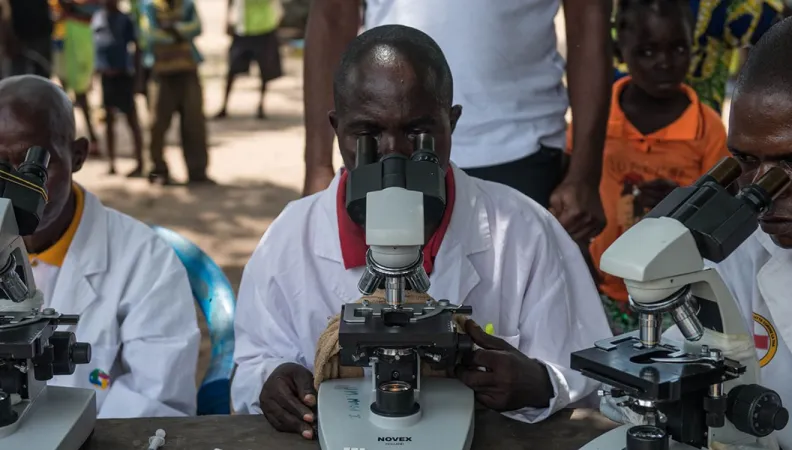Share the page
Neglected Diseases and Covid-19: Innovative Research and Development Strategies
Published on

In our series on “Shared Innovation”, AFD highlights innovative programs created or developed in our partner countries. The race for a coronavirus vaccine casts into sharp relief existing inequalities of global public health. Tropical diseases affecting more than one billion people attract only a fraction of the funding for illnesses affecting people in the north. But this is changing, with innovative forms of investment and collaboration increasing the affordability of neglected diseases. That could help pave the way to a widely available vaccine for Covid-19.
Around the world, millions of people are afflicted by illnesses for which there is no available or affordable treatment. While illnesses more prevalent in industrialized societies receive billions of euros worth of research and development, often neglected are tropical illnesses that ravage populations across the global south, from Human African trypanosomiasis or sleeping sickness, to Chagas disease and Trachoma, the leading infectious cause of blindness.
In low-income countries, drugs and vaccines for tropical diseases can be costly to develop but far less profitable. Campaigners fear this dynamic will wreak havoc as the Covid-19 pandemic continues to spread. Earlier this month Médécins Sans Frontières and DNDi – Drugs for Neglected Diseases initiative, supported by AFD, issued a joint statement calling for shared research, data and funding to be placed in the public domain.
“It’s impossible to apply the traditional rules of the game for pharmaceutical development and access when you must respond to a global pandemic,” says Jean- François Alesandrini, former DNDi External Affairs Director.
“With the high prices of medicine and a lack of investment in global health R&D, there is a growing consensus that things must change. Many innovative mechanisms continue to be set up, such as new funding mechanisms and data-sharing platforms to identify new compounds.”
Read other reports in our series: “Shared Innovation”
Virtual Laboratories
Some diseases that have long been neglected are at last receiving the attention they need. Sleeping sickness can affect up to 65 million people in Sub-Saharan Africa and can be fatal without treatment. In the Democratic Republic of Congo, the country hardest hit by the disease, pharmaceutical giant Sanofi and DNDi experts conducted clinical trials with Congolese scientists to determine the viability of a new drug.
The teams worked together as part of a Product Development Partnership or PDP, which has been described as a kind of vast virtual laboratory. The public-private partnerships embrace the logic of the Commons and try to produce affordable medicines that are sold at cost plus a small margin that provides incentives for industry to take part.
In the same way that natural resources and open source information can be shared and developed, research and data are pooled in PDPs, allowing companies to reduce the risk and develop medicines which would otherwise be too costly.
The Congo clinical trials paid off: they resulted in the creation of the new drug, Fexinidazole, which was found to be both safe and effective. In November 2018, the European Medicines Agency approved it.
It’s not only a medical success story; it’s a triumph for scientific collaboration and Product Development Partnerships in particular.
“PDPs play a major role in the supply of care in the South by developing R&D projects geared towards access for the most deprived populations,” says AFD Research Officer Stéphanie Leyronas. “That is to say the production of medicines at affordable costs, responding to specific needs.”
This is the result she said, of “research approaches based on collaboration and the opening up of science.”
Filling the Funding G a p s
Advocates hope that similarly open and collaborative processes will yield results in the search for a coronavirus vaccine. Scientists, doctors, governments and donors are forming more multi-disciplinary partnerships, such as the Covid-19 Clinical Research Coalition. The goal is to accelerate research, particularly in developing countries where the coronavirus could destabilize already fragile health systems.
Photo credit: © Neil Brandvold / DNDi
